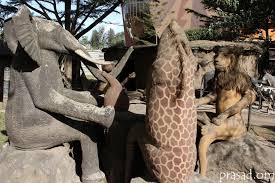INTRODUCTION
This post discusses political history of Tanzania, the politics in where it explains the government of Tanzania as a unitary government.
The politics of Tanzania takes place in a framework of unitary presidential democratic republic, whereby the President of Tanzania is both head of state and head of government, and of a multi-party system. Executive power is exercised by the government. Legislative power is vested in both the government and parliament. The party system is dominated by the (Revolutionary State Party). The Judiciary is independent of the executive and the legislature
The Economist Intelligence Unit rated Tanzania a “hybrid regime” in 2022.
POLITICAL HISTORY
Full independence came in December 1961 and Julius Kambarage Nyerere (1922–1999), a socialist leader who led Tanganyika from colonial rule, was elected President in 1961. One of Africa’s most respected figures, Julius Nyerere was seen as a politician of principle and intelligence. Known as Mwalimu (teacher), he proposed a widely acclaimed vision of education.
From independence in 1961 until the mid-1980s, Tanzania was a one-party state, with a socialist model of economic development. Beginning in the mid-1980s, under the administration of President Ali Hassan Mwinyi, Tanzania undertook a number of political and economic reforms. In January and February 1992, the government decided to adopt multiparty democracy. Legal and constitutional changes led to the registration of 11 political parties. Two parliamentary by-elections in early 1994, both won by Chama Cha Mapinduzi (CCM), were the first-ever multiparty elections in Tanzanian history.
In October 2000, Tanzania held its second multi-party general elections. The ruling CCM party’s candidate, Benjamin W. Mkapa, defeated his three main rivals, winning the presidential election with 71% of the vote. In the parliamentary elections, CCM won 202 of the 232 elected seats. In the Zanzibar presidential election, Abeid Amani Karume, the son of former President Abeid Karume, defeated CUF candidate Seif Shariff Hamad. The election was marred by irregularities, and subsequent political violence claimed at least 23 lives in January 2001, mostly on Pemba Island, where police used tear gas and bullets against demonstrators. Hundreds were injured, and state forces were reported to have attacked boats of refugees fleeing to Kenya. Also, 16 CUF members were expelled from the Union Parliament after boycotting the legislature to protest the Zanzibar election results.
Read:POLITICAL HISTORY OF STATES IN UNITED STATES OF AMERICA (USA).
In October 2001, the CCM and the CUF parties signed a reconciliation agreement that called for electoral reforms and set up a Commission of Inquiry to investigate the deaths that occurred in January 2001 on Pemba. The agreement also led to the President appointment of an additional CUF official to become a member of the Union Parliament. Changes to the Zanzibar Constitution in April 2002 allowed both the CCM and CUF parties to nominate members to the Zanzibar Electoral Commission. In May 2003, the Zanzibar Electoral Commission conducted by-elections to fill vacant seats in the parliament, including those seats vacated by the CUF boycott.
Observers considered these by-elections, the first major test of the reconciliation agreement, to be free, fair, and peaceful. President Mkapa, Vice President Ali Mohamed Shein, Prime Minister Frederick Sumaye, and National Assembly members will serve until the next general elections in 2005. Similarly, Zanzibar President Karume and members of the Zanzibar House of Representatives also will complete their terms of office in 2005.
As of 2010, Tanzania was ranked Partly Free by Freedom House. The 2011 Democracy Index marked Tanzania as a “hybrid regime”, ranking it 90th out of 167, an improvement from 92nd the year before, but preceding a decline on a number of metrics as shown in subsequent Freedom House studies. By 2018, many of the factors taken into account by Freedom House had undergone a small but significant decline, with the most recent reports citing a marked deterioration in the rights of civil society and reduced the abilities of political opposition to criticize the Magufuli regime. Tanzania remains in the “Partly free” category as of 2018.
According to Human Rights Watch since the election of President John Magufuli in December 2015, Tanzania has witnessed a marked decline in respect for free expression, association and assembly. On 19 March 2021, Vice President Samia Suluhu Hassan became the new president after the sudden death of President John Magufuli. She is the first female President of Tanzania.


